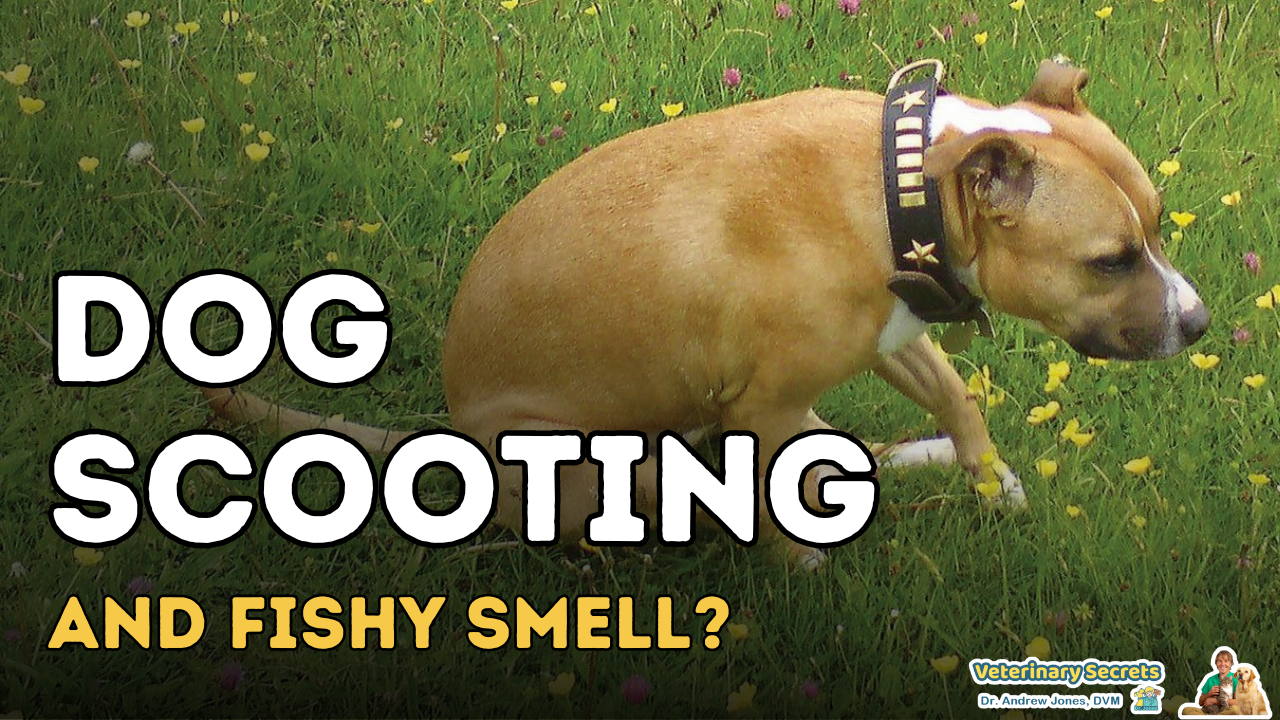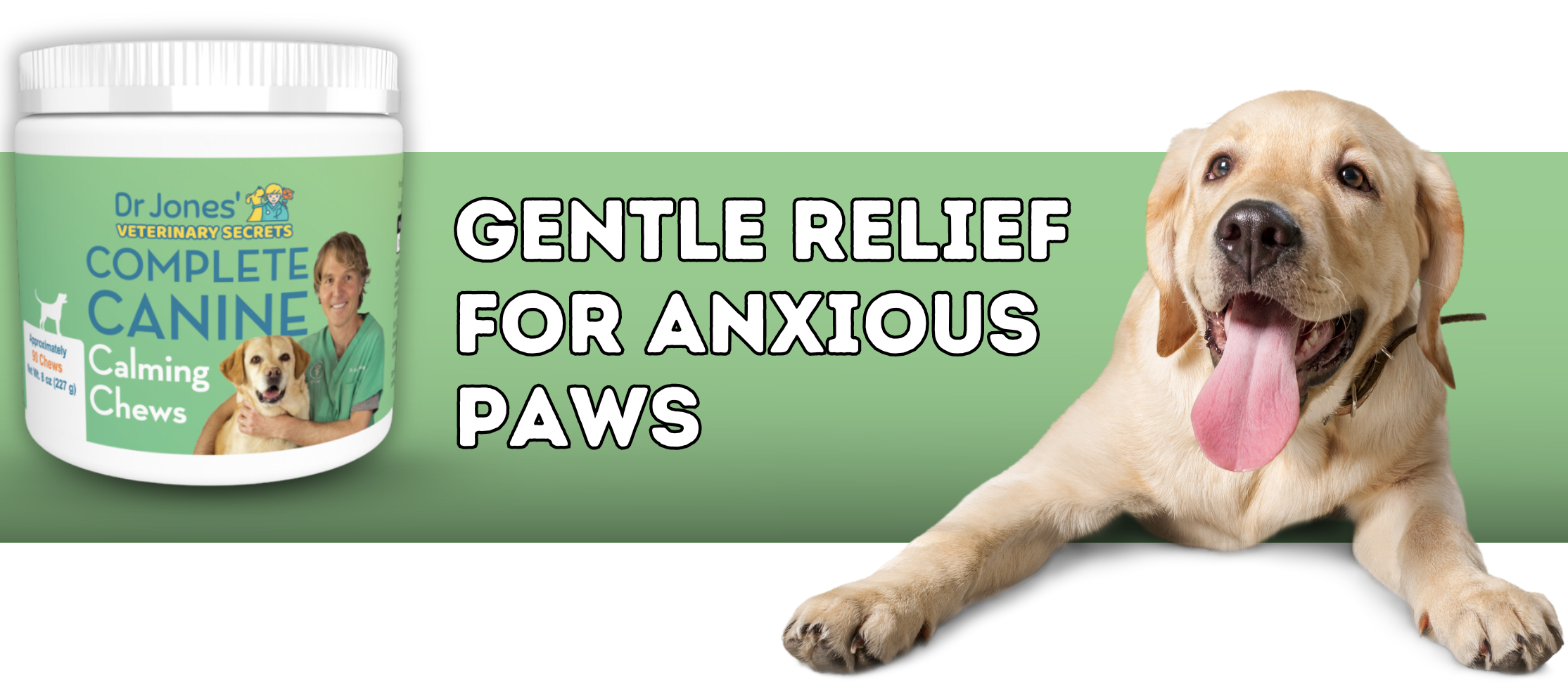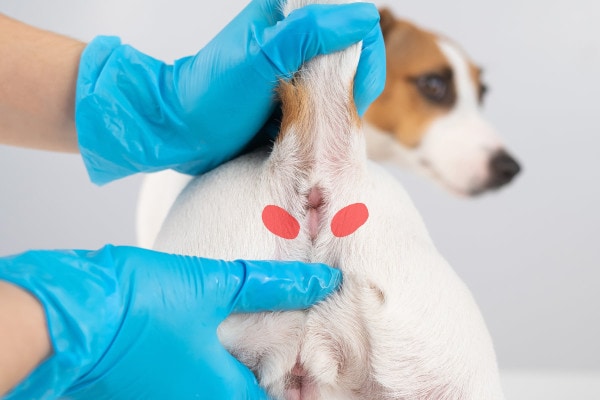Dog scooting and fishy smell? Best remedies, DIY deodorizer

One of my less than stellar skills… . I was an ‘expert’ anal gland expresser 🙁
Meaning when you are a new veterinary graduate, working in a busy practice, they let you express of the smelly anal glands… .
I am going to show you what to do at home to prevent this, treat and, and a DIY ‘fishy’ dog smell deodorizer.
One supplement that I saw to help some dogs in practice were probiotics, along with enzyme supplements.
If you have a dog with a recurring Anal gland problem, or any ongoing digestive disorder, you should consider trying them.
They are here:
Dr Jones’ COMPLETE Digestive Care Soft Chews


What are ANAL GLANDS in dogs?
The anal sacs are two small pouches located internally at approximately the four o’clock and eight o’clock positions around the dog’s anus. Each sac wall is lined with large amounts of sebaceous glands (i.e. the anal glands).
They secrets a foul smelling liquid that has a ‘fishy’ smell. This is also known as the ‘scent gland’. Each time your dog defecates, he expresses some of his anal gland contents, for a ‘unique scent’. Dogs can use their anal gland scent to mark their territories and identify each other – it’s all about the smell.
Why do dogs’ anal glands fill up and need to be expressed?
The duct that goes from the anal gland to the anus can become obstructed with inflammation. At times the anal gland liquid can become ‘thicker’, making it more difficult to be naturally expressed.
When dogs can’t properly empty their anal glands, they may experience a variety of anal sac diseases. Some common dog anal gland issues include:
- Anal gland impaction – When the anal gland fluid is abnormal and/or can’t exit the anal glands, it builds up and causes pressure and inflammation.
- Anal gland infections – Left untreated, an anal gland impaction can turn into an infection. Alternatively, bacteria from the anal area can travel down the canal of the anal sac and cause an infection.
- Anal gland rupture – If an anal gland infection becomes bad enough, it can rupture through the surface of the skin around the anus, creating an open wound that may leak anal gland secretions, blood, or pus.
- Anal gland tumors – Occasionally, dogs can develop anal gland cancer, which may spread to other areas of the body.
Dealing with Anal Gland Problems in Dogs
Impacted or infected anal glands are a common issue in dogs. If your furry friend is showing any of the following symptoms, they might be experiencing anal gland problems:
- Scooting: Dragging their bum on the carpet is a telltale sign.
- Fishy Odor: Your dog smells like fish, or there’s a fishy odor where they frequently lie or sit.
- Swelling: A bump, bulge, or generalized swelling near the anus.
- Irritated Skin: Red and irritated skin around the anus.
- Discharge: Brown or red discharge leaking from the anal gland openings.
- Licking: Excessive licking at the base of the tail.
- Straining: Difficulty or straining during defecation.
- Pain: Crying out, whimpering, or showing signs of pain during a bowel movement.
- Sitting: Repeatedly or quickly sitting down.
Preventing and Treating Anal Gland Problems at Home
If your dog is able to defecate normally and there’s no visible redness, swelling, infection, or discharge near the anus, you can try the following remedies:
-
Express Glands Yourself: While it’s not the most pleasant task, expressing the glands can provide relief.
- Bathe your pet’s bottom with lukewarm water.
- Wear gloves and lift your pet’s tail.
- Hold a paper towel behind the anus.
- Squeeze gently on the right side (four o’clock) and the left side (eight o’clock) of the anus with your thumb and forefinger. Apply moderate pressure.
- If nothing comes out, adjust your angle and try again. You should see a brownish, foul-smelling fluid.
- Alternatively, you can squeeze over the top of the anal glands.
-
Apply Some Heat: Use a washcloth soaked in Epsom salts and warm water, holding it to your pet’s bottom for five minutes twice daily. You can also apply pressure to the glands while compressing.
-
Bulk Up: Increase stool volume with additional fiber, which can help naturally express the glands. Good sources include ground flax, Metamucil, oat bran, carrots, or pumpkin.
-
Move It: Regular exercise can aid in gland expression. Aim for at least fifteen minutes of exercise twice daily.
-
Probiotics: Restore natural bacteria in the intestine with a good quality probiotic supplement, like Probiotics in Dr. Jones’ supplements.
-
Allergies: Address allergies that can lead to secondary inflammation and obstruction of the duct. Enzyme supplements may be helpful for some dogs.
-
Call the Vet: If the glands remain obstructed or appear abscessed, seek veterinary care. Your pet may need antibiotics or surgery.
DIY Doggy Deodorizer for Fishy Smells
If your dog gets a fishy smell, try this all-natural DIY Doggy Deodorizer:
- Water: ½ cup
- Apple Cider Vinegar (ACV): 2 tablespoons
- Castile Soap: 1 teaspoon
- Lavender Oil: 10 drops
Expressing your dog’s anal glands at home is not difficult and can save you a lot of trouble. Additionally, Dr. Jones’ Complete Digestive Care Soft Chews can be a tasty and beneficial treat for dogs with nutrient absorption issues.
P.S. I had many former clients learn how to express anal gland at home- it’s not difficult, and can save you alot.
P.P.S. Dr. Jones’ Complete Digestive Care Soft Chews are a tasty and beneficial treat your dog will love! Our chews contain a proprietary Digestive Enzyme Blend and 2 Billion CFUs of beneficial Probiotics. These chews can help dogs with issues related to poor nutrient absorption, such as food allergies and sensitivities, Pancreatitis, Exocrine Pancreatic Insufficiency (EPI), and Inflammatory Bowel Disease
